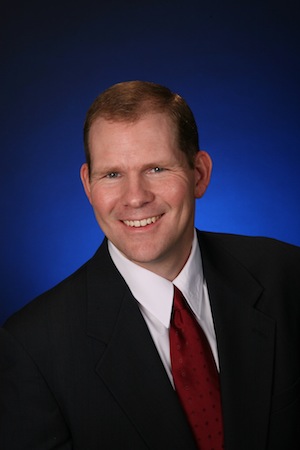Almost 14 years ago, I lost my oldest brother, Jim, to medical errors.
Jim walked into a hospital at 2 a.m., complaining of severe chest, shoulder, neck and stomach pain — classic signs of a heart attack. But because he was only 39 years old and in seemingly excellent health, the doctors thought he was suffering from stomach issues.
The attending physicians never ordered bloodwork, but instead gave Jim an ulcer cocktail and sent him home while he was still in pain.
Later that morning, Jim showed signs of passing out, so my parents took him back to the emergency room. This time, doctors drew blood and, sure enough, his enzyme levels indicated his heart muscles were undergoing damage.
By early afternoon, Jim was admitted to the intensive care unit where, surprisingly, the computer monitor over his bed read my father’s name instead of Jim’s. This was very significant. A couple of months earlier, my father, Ray, had undergone a heart stress test in that same hospital, and it had shown no blockage.
The computer monitor was eventually changed to read “Jim,” but the physicians were still using my dad’s charts, and they diagnosed Jim with a bacterial infection of the heart. Jim actually had four blocked arteries and suffered several heart attacks under their care. My brother ultimately died during emergency open-heart surgery three days later.
The hospital and doctors tried to cover up their mistakes –- no one would speak to my parents. My parents ultimately won a malpractice award, but (at the time) no physician apologized or admitted a mistake. Too often, doctors won’t admit their errors, even those that have been proved, making future patients vulnerable to the same mistakes being repeated.
Often, doctors don’t talk about mistakes because they are afraid of our legal system. However, physicians might not be so fearful of fulfilling their ethical responsibilities if we could replace our current medical malpractice model.
Lawmakers in Georgia and Florida will soon consider a proposal to replace the current tort system with one similar to the workers’ compensation system, which has been around for a century. Known as a Patients’ Compensation System, it would allow patients and their relatives who have been harmed to be compensated faster, and it would let physicians avoid being dragged into court for years.
Under a Patients’ Compensation System, patients would truly be the focus. While my family had to endure lengthy and stressful litigation to be compensated for the loss of Jim, families instead would earn a settlement within months.
First, the patient or family, represented by counsel, would file a claim before a review panel, which would determine if harm had truly been committed. If so, the panel would then forward the claim to the Compensation Board to determine compensation following consistent national norms, including consideration for pain and suffering and other non-economic losses.
The system would be overseen by an administrative law judge, include multiple appeal options, and would be financed by doctors and hospitals through their malpractice premiums — no different than what they pay today.
In my family’s case, we got something for Jim’s life, though nothing will ever replace losing him. On average, though, fewer than 20 percent of patients or families earn any kind of an award when harmed by a doctor. By eliminating defense costs and providing consistency in the claims process, the Patients’ Compensation System would provide compensation to more injured patients and their families.
Most importantly, by removing some of the legal “fear factor,” the Patients’ Compensation System would help doctors be more open about their errors, apologize and learn from their mistakes, and be better able to prevent tragedies such as the one my family experienced.
Doug Wojcieszak is a member of the national board of Patients for Fair Compensation, a nonprofit that will ask the Georgia General Assembly to adopt a Patients’ Compensation System. He also is the founder of Sorry Works!, a leading advocacy and training organization for disclosure after medical errors.

